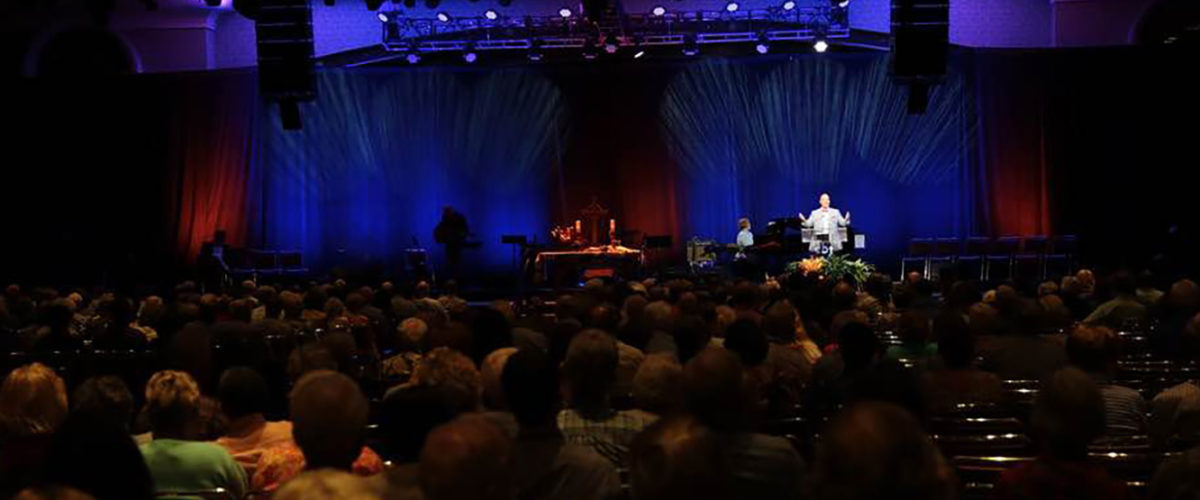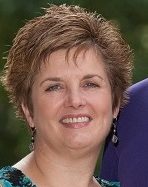The Cooperative Baptist Fellowship is embarking on a new course for national and international missions, one designed to broaden relationships between churches and field personnel and to boost the Fellowship’s global presence.
CBF members voted during its General Assembly in Greensboro, N.C., Friday morning to launch the Fellowship in a new direction, which seeks to sharpen missions focus and provide equity in the funding of field personnel and their ministries. The new model will go into effect in October 2017.
Under the new plan, which has been 18 months in the making, CBF will use its Offering for Global Missions to finance the salaries, living expenses and benefits of all its field personnel. The missionaries will be responsible for raising the money needed for their programs and ministries, mainly from family, friends and churches.
Previously, CBF used a two-tiered system that fully funded some field personnel while others had to raise all their own funds, including living and other personal expenses.
CBF officials presented the plan at a Thursday business session that included panel discussions and video presentations featuring current and former field personnel and Fellowship church and missions leaders. More information was presented in breakouts later in the day.
Several field personnel present at those gatherings expressed strong support for the new approach.
The previous missions approach created a lot of stress and uncertainty for missionaries who had to raise all their own support, said Scarlette Jasper, a self-funded missionary who serves in the Appalachian foothills of southern Kentucky.
Like many of the impoverished people she serves, Jasper said she often wondered month to month how she would make her house payment. She was never sure her ministry would survive very long.
The new model ensures she can maintain her presence and “will alleviate a lot of the stress,” she said.
“I will have to do my own programming and transportation, but that’s OK because I have security now and I know I will be there,” Jasper said.
Tammy Stocks, CBF field personnel serving in Bucharest, Romania, said it’s a struggle for field personnel to ask churches and individuals for donations to cover personal expenses, like Internet service.
“It’s easier to ask for money for hungry kids,” she said.
In presenting the plan, CBF officials emphasized that many congregations will have to get involved in missions giving and participation, or ramp up their existing commitments.
The Fellowship needs churches to “step up” their giving to the Offering for Global Missions, said Linda Jones, CBF missions coordinator.
They also are needed to work directly with missionaries in the field. The result will be a greater involvement by local churches in the global church, she said.
“Those relationships will be enhanced as field personnel raise their own money for programs,” she said. “Congregations will have a clearer vision of how to relate to field personnel.”
CBF Global Missions Coordinator Steven Porter said the new model was vetted over more than a year of conversations with field personnel, church leaders and other stakeholders.
In addition to the new way of financing missions, the approach will sharpen the Fellowship’s focus in the work it does around the world.
The Fellowship will engage three main areas: global poverty, global migration and the global church.
CBF will coordinate the efforts of field personnel, local churches, students, volunteers and other partners to address those core areas of work.
A hoped-for outgrowth of the new system will be “a reciprocal relationship from the field to the churches,” Porter said.
The new model is admittedly risky, said Joe Phelps, pastor of Highland Baptist Church in Louisville, one of the panel participants.
But so are the other causes CBF champions, including combating payday lending and supporting religious liberty. Phelps added that Jesus was a risk taker who should be emulated.
And those risks are worthwhile because they will transform the churches that go all in, said Chris Ellis, the minister of mission and outreach at Second Baptist Church in Little Rock, Ark.
Congregations will be transformed by their financial and ministry involvement with field personnel, whose challenges and achievements will be intertwined, he said.
CBF missions “will shrink the world” as “churches get involved in what really matters” globally and then are able to apply what they have learned in their own communities, Ellis said.
During a breakout session on Thursday, Porter said no existing field personnel will be “terminated” as a result of the new model. However, some may see changes in their titles and relationship to CBF if they already work for other nonprofit organizations or ministries.
Neither he nor other CBF officials in the breakout would publicly estimate how much the new plan will cost, or how much field personnel will receive for salaries and benefits. They did say that field personnel salaries are roughly comparable to those earned by mid-level church staff members.
They noted that the packages will vary per person because some live and work in parts of the country and the world where the cost of living is very high.
Currently there are 102 field personnel. About 55 percent of them are funded by the Offering for Global Missions, and the others are self-supporting.
When the new model begins next year, all field personnel will be required to raise $12,000 for a reserve fund for use in emergencies or when, say, a transmission or computer must be replaced, Porter said.





